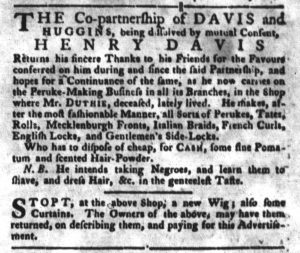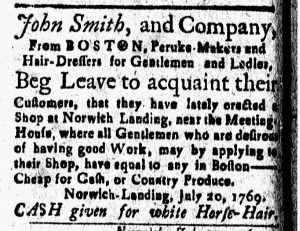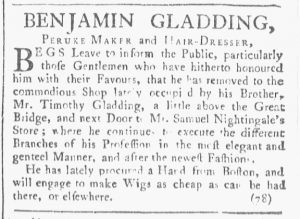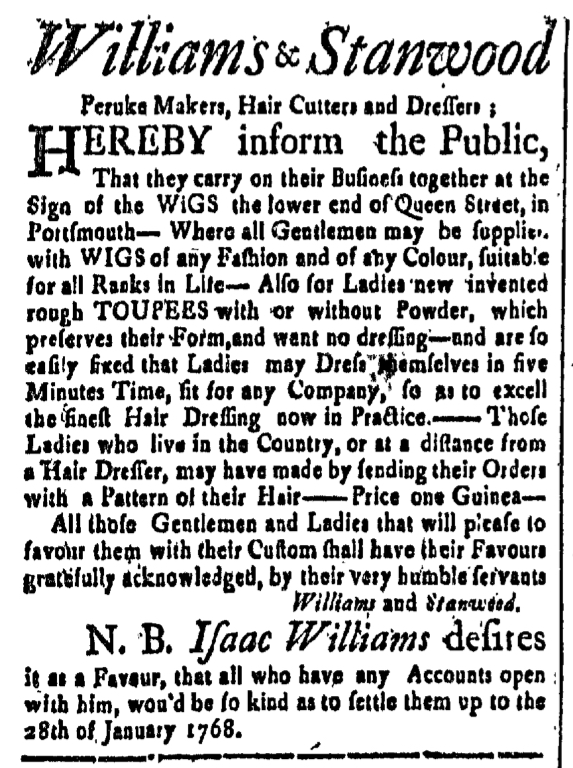What was advertised in a colonial American newspaper 250 years ago this week?

“From the Clergymens and Counsellors full Dress Wigs, down to the common cut Bob.”
In the late summer and early fall of 1770, Thomas Hewitt, a perukemaker in Annapolis, advertised wigs for gentlemen in the Maryland Gazette. He carried a full inventory of “all Sorts of Wigs, made in the newest and most approved Fashions.” He had everything from “Clergymens and Counsellors full Dress Wigs, down to the most common cut Bob” as well as “Dress Bag Wigs, Half Dress, and Scratch Cut Wigs.” The distinctions may seem obscure to most modern readers, but eighteenth-century gentlemen who read Hewitt’s advertisement recognized the differences. Hewitt concluded the list of wigs he made and sold with “&c. &c.” (an abbreviation for et cetera) to indicate an even greater variety available at his shop.
Hewitt aimed to make each prospective customer feel as though he was the wigmaker’s most important client. He pledged that they “may depend on having their Wigs well made, and of the best Hair,” which he had recently imported along with other materials necessary for carrying on his business. His clients could depend on their wigs being “as neatly and faithfully executed, as if each had been made for his best and most particular Customer.” This was an appeal to quality, but it was also an appeal to customer satisfaction and consumer discernment. Hewitt did not cut corners but instead crafted each wig with care and attention. His clients would note that when they examined his wigs, as would their friends and acquaintances when Hewitt’s customers wore the wigs he crafted.
The wigmaker also served a market that extended beyond Annapolis. He addressed “those Gentlemen who reside in the remote Parts of the Province, where they cannot be supplied with Wigs by Post” or a local wigmaker that he kept an extensive inventory on hand for their convenience when they visited Annapolis. They did not need to make multiple trips to his shop over the course of days or weeks, first for measurements and placing an order and later to pick up wigs once Hewitt had a chance to make them. Instead, they could select a wig on their initial visit to Hewitt’s shop and depart Annapolis when it suited them. That was another reason for the perukemaker to emphasize the care that went into each and every one of the wigs he constructed. He offered reassurances to those gentlemen who chose to purchase “off the rack” for convenience.
Hewitt deployed several appeals to incite demand for his wigs, from the materials that went into their construction and the quality of his work to his extensive inventory and the convenience it afforded to prospective clients who lived at a distance. He did more than merely announce that he had wigs for sale. Instead, he sought to convince consumers that they purchase their wigs from him.









